Questões de Concurso Público UNICAMP 2019 para Jornalista
Foram encontradas 60 questões
Observe o texto digitado em um documento do MS-Word 2010, em sua configuração original, e assinale a alternativa correta.
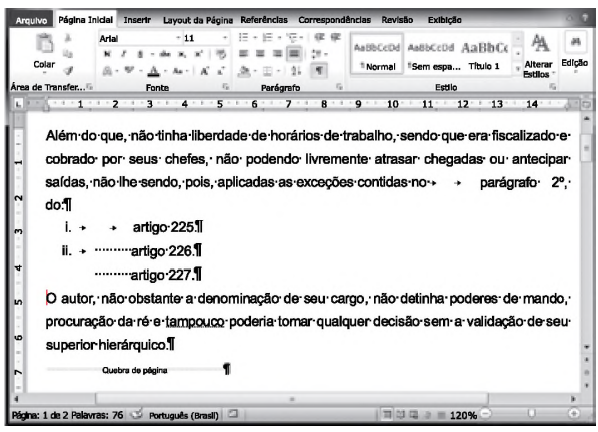
Considere a planilha do MS-Excel 2010, na sua configuração padrão
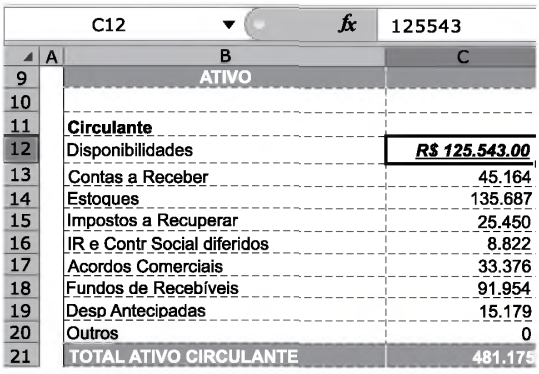
Ao pressionar CTRL+C na célula C12 e colar na célula C15 com a opção de colagem especial 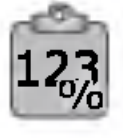 , resultará no
seguinte conteúdo:
, resultará no
seguinte conteúdo:
Na figura a seguir, é mostrada uma apresentação do MS-PowerPoint 2010, em sua configuração original.
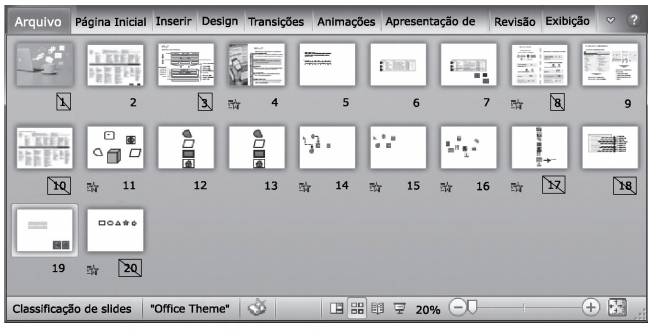
No slide 19, foi inserido o botão de ação (configurado com hiperlink padrão) que, ao ser clicado em modo de exibição
de slides, levará a apresentação para o seguinte slide:
(configurado com hiperlink padrão) que, ao ser clicado em modo de exibição
de slides, levará a apresentação para o seguinte slide:
Considere a mensagem de correio eletrônico digitada no MS-Outlook 2010, na sua configuração padrão, pronta para ser enviada.
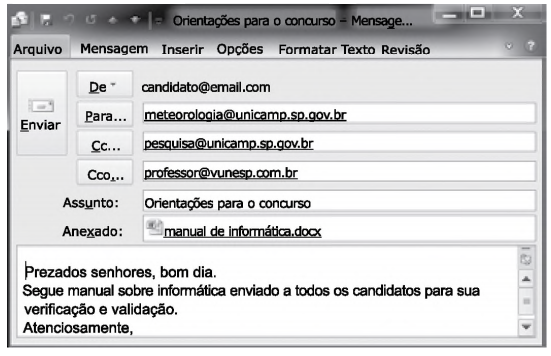
Ao receber a mensagem, [email protected]
pretende retransmiti-la apenas para a banca da Vunesp
([email protected]), mantendo o manual de
informática como anexo. Para isso, é necessário o
seguinte procedimento a partir da mensagem originalmente recebida: clicar na opção
A Free Press Needs You
By The Editorial Board
August 15, 2018
In 1787, the year the Constitution was adopted in the USA, Thomas Jefferson famously wrote to a friend, “Were it left to me to decide whether we should have a government without newspapers, or newspapers without a government, I should not hesitate a moment to prefer the latter.”
That's how he felt before he became president, anyway. Twenty years later, after enduring the oversight of the press from inside the White House, he was less sure of its value. “Nothing can now be believed which is seen in a newspaper,” he wrote. “Truth itself becomes suspicious by being put into that polluted vehicle.”
Jefferson's discomfort was, and remains, understandable. Reporting the news in an open society is an enterprise laced with conflict. His discomfort also illustrates the need for the right of free press he helped to preserve. As the founders believed from their own experience, a well-informed public is best equipped to root out corruption and, over the long haul, promotes liberty and justice. “Public discussion is a political duty,” the Supreme Court said in 1964. That discussion must be “uninhibited, robust, and wide-open” and “may well include vehement, caustic and sometimes unpleasantly sharp attacks on government and public officials.”
(www.nytimes.com/interactive/2018/08/15/opinion/editorials/free-press-local
-journalism-news-donald-trump.html?action=click&module=Trending&
pgtype=Article®ion=Footer&contentCollection=Trending. Adaptado.)
A Free Press Needs You
By The Editorial Board
August 15, 2018
In 1787, the year the Constitution was adopted in the USA, Thomas Jefferson famously wrote to a friend, “Were it left to me to decide whether we should have a government without newspapers, or newspapers without a government, I should not hesitate a moment to prefer the latter.”
That's how he felt before he became president, anyway. Twenty years later, after enduring the oversight of the press from inside the White House, he was less sure of its value. “Nothing can now be believed which is seen in a newspaper,” he wrote. “Truth itself becomes suspicious by being put into that polluted vehicle.”
Jefferson's discomfort was, and remains, understandable. Reporting the news in an open society is an enterprise laced with conflict. His discomfort also illustrates the need for the right of free press he helped to preserve. As the founders believed from their own experience, a well-informed public is best equipped to root out corruption and, over the long haul, promotes liberty and justice. “Public discussion is a political duty,” the Supreme Court said in 1964. That discussion must be “uninhibited, robust, and wide-open” and “may well include vehement, caustic and sometimes unpleasantly sharp attacks on government and public officials.”
(www.nytimes.com/interactive/2018/08/15/opinion/editorials/free-press-local
-journalism-news-donald-trump.html?action=click&module=Trending&
pgtype=Article®ion=Footer&contentCollection=Trending. Adaptado.)
A Free Press Needs You
By The Editorial Board
August 15, 2018
In 1787, the year the Constitution was adopted in the USA, Thomas Jefferson famously wrote to a friend, “Were it left to me to decide whether we should have a government without newspapers, or newspapers without a government, I should not hesitate a moment to prefer the latter.”
That's how he felt before he became president, anyway. Twenty years later, after enduring the oversight of the press from inside the White House, he was less sure of its value. “Nothing can now be believed which is seen in a newspaper,” he wrote. “Truth itself becomes suspicious by being put into that polluted vehicle.”
Jefferson's discomfort was, and remains, understandable. Reporting the news in an open society is an enterprise laced with conflict. His discomfort also illustrates the need for the right of free press he helped to preserve. As the founders believed from their own experience, a well-informed public is best equipped to root out corruption and, over the long haul, promotes liberty and justice. “Public discussion is a political duty,” the Supreme Court said in 1964. That discussion must be “uninhibited, robust, and wide-open” and “may well include vehement, caustic and sometimes unpleasantly sharp attacks on government and public officials.”
(www.nytimes.com/interactive/2018/08/15/opinion/editorials/free-press-local
-journalism-news-donald-trump.html?action=click&module=Trending&
pgtype=Article®ion=Footer&contentCollection=Trending. Adaptado.)
A Free Press Needs You
By The Editorial Board
August 15, 2018
In 1787, the year the Constitution was adopted in the USA, Thomas Jefferson famously wrote to a friend, “Were it left to me to decide whether we should have a government without newspapers, or newspapers without a government, I should not hesitate a moment to prefer the latter.”
That's how he felt before he became president, anyway. Twenty years later, after enduring the oversight of the press from inside the White House, he was less sure of its value. “Nothing can now be believed which is seen in a newspaper,” he wrote. “Truth itself becomes suspicious by being put into that polluted vehicle.”
Jefferson's discomfort was, and remains, understandable. Reporting the news in an open society is an enterprise laced with conflict. His discomfort also illustrates the need for the right of free press he helped to preserve. As the founders believed from their own experience, a well-informed public is best equipped to root out corruption and, over the long haul, promotes liberty and justice. “Public discussion is a political duty,” the Supreme Court said in 1964. That discussion must be “uninhibited, robust, and wide-open” and “may well include vehement, caustic and sometimes unpleasantly sharp attacks on government and public officials.”
(www.nytimes.com/interactive/2018/08/15/opinion/editorials/free-press-local
-journalism-news-donald-trump.html?action=click&module=Trending&
pgtype=Article®ion=Footer&contentCollection=Trending. Adaptado.)
A Free Press Needs You
By The Editorial Board
August 15, 2018
In 1787, the year the Constitution was adopted in the USA, Thomas Jefferson famously wrote to a friend, “Were it left to me to decide whether we should have a government without newspapers, or newspapers without a government, I should not hesitate a moment to prefer the latter.”
That's how he felt before he became president, anyway. Twenty years later, after enduring the oversight of the press from inside the White House, he was less sure of its value. “Nothing can now be believed which is seen in a newspaper,” he wrote. “Truth itself becomes suspicious by being put into that polluted vehicle.”
Jefferson's discomfort was, and remains, understandable. Reporting the news in an open society is an enterprise laced with conflict. His discomfort also illustrates the need for the right of free press he helped to preserve. As the founders believed from their own experience, a well-informed public is best equipped to root out corruption and, over the long haul, promotes liberty and justice. “Public discussion is a political duty,” the Supreme Court said in 1964. That discussion must be “uninhibited, robust, and wide-open” and “may well include vehement, caustic and sometimes unpleasantly sharp attacks on government and public officials.”
(www.nytimes.com/interactive/2018/08/15/opinion/editorials/free-press-local
-journalism-news-donald-trump.html?action=click&module=Trending&
pgtype=Article®ion=Footer&contentCollection=Trending. Adaptado.)
Uma indústria de refrigerantes publicou uma pequena brochura com a colaboração de jornalistas experientes sobre um produto jornalístico ainda muito em uso por empresas. Gualter Mathias Netto, então redator de “O Globo” afirmou que “a função primordial do_______ - e seu irmão mais gordo, o _______ - não é a de ser publicada como matéria acabada, mas de provocar a notícia.” (***) Esses produtos jornalísticos têm grande “diversidade de aproveitamento” por esse motivo “exige concepções diversas do material a ser distribuído. Há que se elaborar um texto pronto para publicação, quando dirigido a pequenos órgãos; o _______ curto (como diz o nome) para colunistas, pauteiros e chefes de reportagem; e o mais extenso,_______ , para informar os autores de matérias mais profundas.”
Assinale a alternativa que preenche, correta e respectivamente as lacunas do texto.
Misto de beco e escadaria, um corredor estreito que margeia a beira do morro leva a uma casa onde funciona o restaurante Sabor das Louras. Na varanda do 2º andar, duas mesas proporcionam uma vista da Baía da Guanabara e de um pedaço da Estação Central do Brasil, um privilégio que desfruta quem acessa aquela área do Morro da Providência, no centro do Rio de Janeiro.
O trecho acima pertence à abertura de uma matéria que conta a história de Rosana Damasceno, proprietária de um pequeno restaurante para turistas do Morro da Providência, no Rio de Janeiro.
De acordo com as características de redação desse trecho de matéria, é correto afirmar que ela pode ter sido veiculada
Uma pesquisa realizada pela Universidade Federal de Santa Catarina constatou, junto a experientes profissionais e análise de matérias do gênero que, “a partir do lugar de ancoragem na revista foi possível agrupar as entrevistas” do tipo pingue-pongue em dois tipos. As entrevistas_______são publicadas, por exemplo, nas páginas amarelas da revista Veja. São entrevistas que “mantêm independência temática e ocupam os espaços mais privilegiados nas edições das revistas”. As entrevistas_______, “não raras vezes, cumprem a tarefa de “completar” e/ou reafirmar um “já dito” na edição da revista” e esse tipo de entrevista não disputa espaço com outros gêneros jornalísticos da revista.
(https://periodicos.ufsc.br. Adaptado)
Asinale a alternativa que preenche, correta e respectivamente, as lacunas do texto.